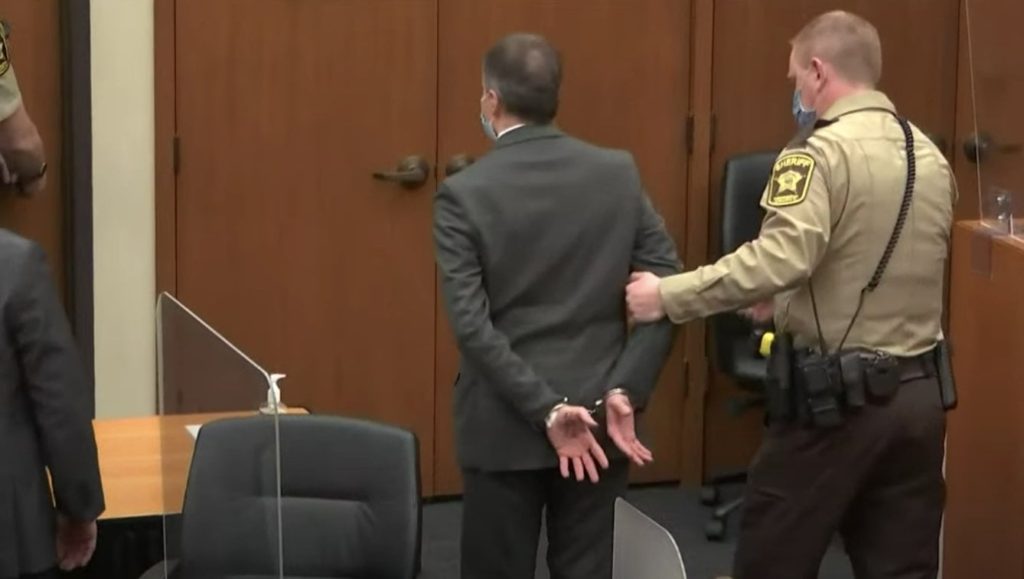By Kevin Mwangi
NAIROBI, Kenya, Apr 27- Last week we saw the jury in the United States find Derek Chauvin guilty of the murder of George Floyd.
The 46-year-old had bought a pack of cigarettes at a convenience store in South Minneapolis on the evening of 25 May 2020, when the unexpected happened.
A shop assistant believed he had used a counterfeit $20 note and called the police after Mr Floyd refused to give the cigarettes back. When police arrived, they ordered Mr Floyd out of his parked car and handcuffed him.
A struggle ensued when officers tried to put a screaming Mr Floyd in their squad car.
They wrestled him to the ground and pinned him under their weight. Chauvin pressed his knee into the back of Mr Floyd’s neck for more than nine minutes, as the suspect and several bystanders pleaded for his life.
As he was being restrained, Mr Floyd said more than 20 times that he could not breathe, pleading for his mother and begging “please, please, please”.
When the ambulance arrived, Mr Floyd was motionless. He was pronounced dead about an hour later.
After the verdict, a lot of reactions ensued some saying the defence tried painting the narrative that he died because he had a big heart while the reason he died was because the police officer had a small heart but the one that really caught my eye was a quote that said the conviction was all about accountability and not justice because if justice was to be realized, George Floyd would be alive today.
Contextualizing it, access to justice is a central theme in our constitution. The constitution lays great emphasis on access to justice in at least four ways.
First, it has a substantive provision on access to justice; Article 48 states that the “State shall ensure access to justice for all persons and, if any fee is required, it shall be reasonable and shall not impede access to justice.”
Second, Article 22 of the Constitution of Kenya 2010 makes it easy for persons who have disputes about human rights to go to court either for themselves or on behalf of others, especially those who cannot act on their own behalf.
This type of access is broadened by Article 258 to violations of any provisions of the constitution.
Third, Article 50, dealing with fair hearing contains provisions that create facilitative mechanisms to ensure that court processes are fair, especially to the poor.
It says that those with disputes have a right to a lawyer (which means a lawyer they hire themselves), but importantly requires that an accused person have an advocate assigned “by the State and at State expense, if substantial injustice would happen, and to be informed of this right promptly.”
Finally, Article 159 provides for some minimum principles that should guide access to justice, including that justice shall be done to all irrespective of their status, it should not be delayed and that procedural technicalities should not be used as a bar to achieving substantive justice.
However having analysed the constitution, I still find myself asking questions is this justice especially when it comes to human rights, we are more reactive than proactive in facilitating justice and this is evident with the statistics from the Independent medico-Legal unit where they recorded more than 26 unlawful police killings last year, IPOA reported it had 62 pending court cases involving police killings, with 12 cases involving police killings awaiting registration in court and 35 cases awaiting legal review by the Office of the Director of Public Prosecutions.
Extra Judicial Killings remain a thorn in our Country and an analysis of the situation seems to suggest we are chasing accountability but not justice. We are more reactive than we are proactive which clearly doesn’t seem to be working as the numbers seem to be escalating.
For over a decade, there has been attempts at police reforms, with the ultimate objective being to create a democratic and accountable police service that isn’t politicised or involved in crime but this does not seem to be bearing fruit which begs the question are we focusing on the right reforms or are we implementing the right strategies?
Justice and Accountability have to be realised together otherwise we will keep losing lives as we chase accountability without putting more emphasis on justice.
The International Law recognises this and states that among the 5 forms of reparation is the guarantee of non -repetition, this is often ignored at all levels of the justice system and its time we start being intentional in how we address justice in our advocacy and legislation.
We need to address the root causes of these human rights violations and prevent them from happening in the first place to ensure that the George Floyd’s of this Country live to see another day.
The Author, Kevin Mwangi is an Advocate of the High Court of Kenya and an expert member of the Working Group On the Death Penalty, Extrajudicial, Summary or Arbitrary Killings and Enforced Disappearance in Africa at the African Commission on Human and Peoples’ Rights.
Want to send us a story? Contact Shahidi News Tel: +254115512797 (Mobile & WhatsApp)


